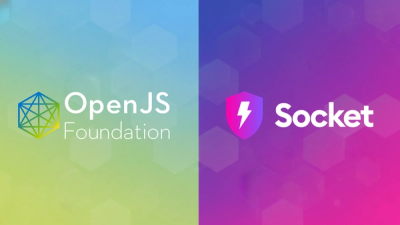
Research
SANDWORM_MODE: Shai-Hulud-Style npm Worm Hijacks CI Workflows and Poisons AI Toolchains
An emerging npm supply chain attack that infects repos, steals CI secrets, and targets developer AI toolchains for further compromise.
Deployer is a deployment tool for Node.js The whole tool is designed to be simple and sane in its function and its defaults.
The command line utility parses your projects package.json to establish its defaults. Only three options are necessary to get fully automated deployments. Simply add a block like the following into either your project's package.json, or in a file named config/config.json in your project:
{ "deployment": { "host": "server.example.org", "user": "deploy", "repo": "git://example.org:example/app.git", "path": "/var/sites" } }
Whatever you specify in the deployer block will be used as the defaults for the deploy command.
You can also supply project dependencies in one of two ways. You can supply them in the package.json, in which case NPM will handle them during deployment. Or, you can add a dependencies section to the file name config/config.json in you project. The format of the dependencies block is the same either way. Here is an example:
{ "dependencies": { "http-proxy": null, "commander": "~0.2", "control": "0.2.1" } }
You can override the defaults provided in your package.json using these options with the deploy command:
-H, --host Host to deploy to -U, --user User to deploy with -R, --repo Repository to deploy from
You can provide certain callbacks that will be invoked at different stages of the deployment cycle in order to customize behavior of Deployer. All callbacks are passed the Deployer object and, so, have access to all its properties and functions. The supported callbacks are as follows, in order of when they're called:
You can define your callbacks by setting them up as exports in a file at config/deployer.js within your project.
FAQs
An automated deployment tool
We found that deployer demonstrated a not healthy version release cadence and project activity because the last version was released a year ago. It has 1 open source maintainer collaborating on the project.
Did you know?

Socket for GitHub automatically highlights issues in each pull request and monitors the health of all your open source dependencies. Discover the contents of your packages and block harmful activity before you install or update your dependencies.

Research
An emerging npm supply chain attack that infects repos, steals CI secrets, and targets developer AI toolchains for further compromise.

Company News
Socket is proud to join the OpenJS Foundation as a Silver Member, deepening our commitment to the long-term health and security of the JavaScript ecosystem.

Security News
npm now links to Socket's security analysis on every package page. Here's what you'll find when you click through.